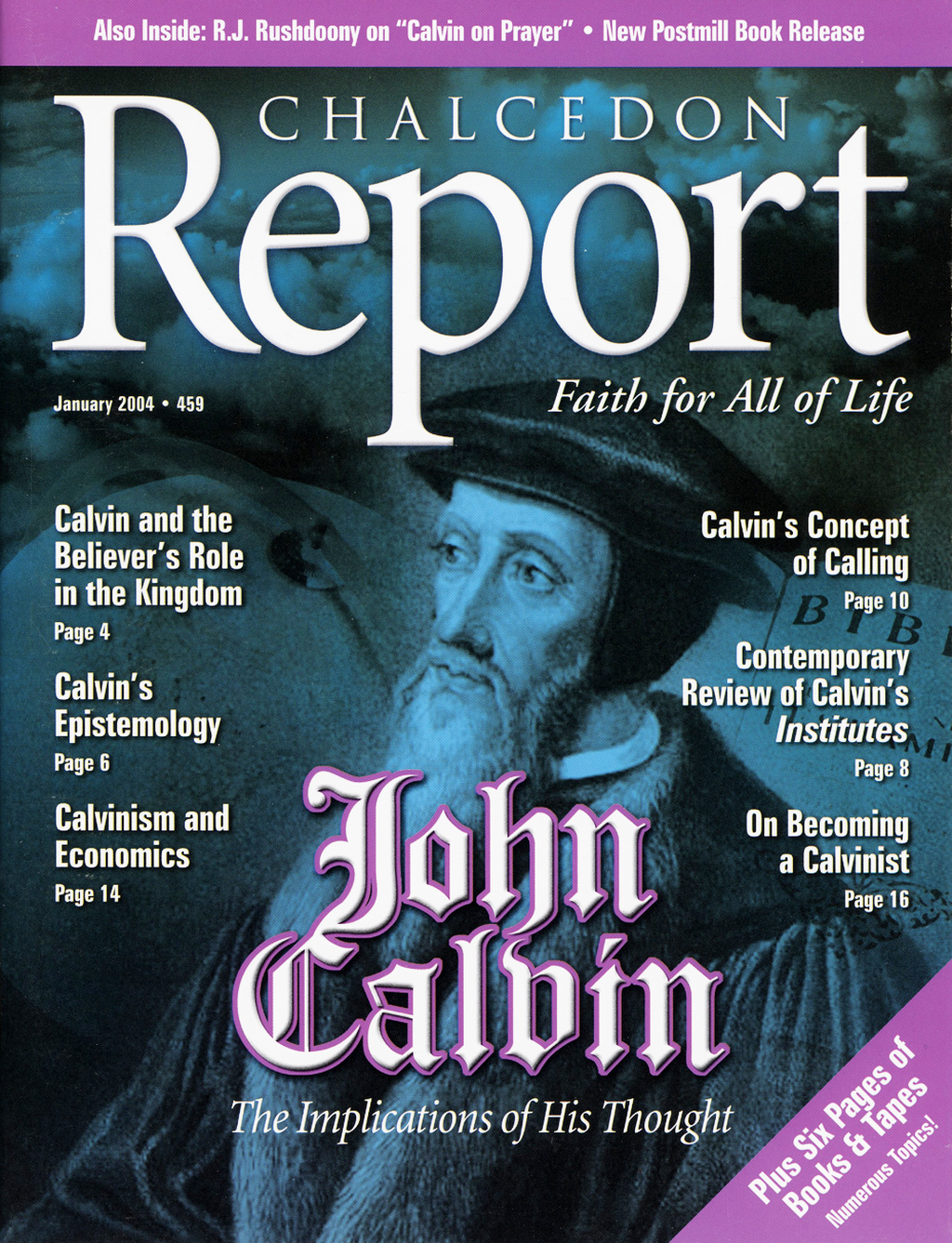
Magazine Issue
John Calvin: The Implications of His Thought
January 2004 Articles:
John Calvin on Prayer

- R. J. Rushdoony
John Calvin and the Believer's Role in the Kingdom of God

- Mark R. Rushdoony
Calvin's Epistemology
- Greg Uttinger
The Institutes of the Christian Religion:A Contemporary Review

- R. J. Rushdoony
Direction for Life: Calvin's Concept of Calling
- Roger Schultz
Our High Calling in Christ
- Tom Rose
What Calvinism Did for Economics
- Timothy D. Terrell
On Becoming a Calvinist
- Samuel L. Blumenfeld
Anything But Abstinence: A Conference on 20 Years of Great Sex (Ed)

- Lee Duigon
Teaching Dominion to a Twelve Year Old
- Mark Hoverson